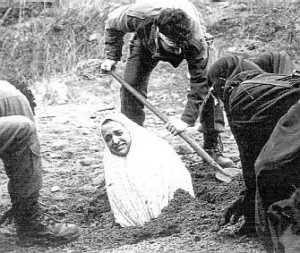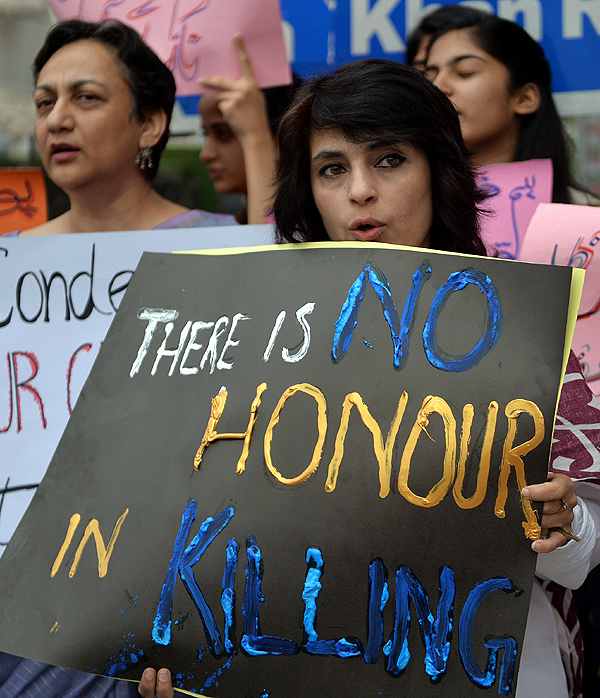Feudalism – The Death of Women Rights in Pakistan
Tuesday, October 18th, 2011 7:19:26 by Momina Khan
Feudalism – The Death of Women Rights in Pakistan
In this issue we will just hit base of some of the major issues women face in Pakistan.
To talk about women rights in a feudalist society is to show red rag to male chauvinist feudal bulls. The feudal lords deliberately keep their women ignorant and backwards to maintain their dominancy in all affairs. Feudalism is the major impediment in the way of genuine empowerment of women.
Norms restricting women’s mobility are closely linked to issues ofpurdah (the head scarf) and izzat (honour), the ideal form of restricted mobility is seclusion of women inside the household. While this is an extreme practice, a more common form is requiring women to seek permission to leave the household and to be accompanied, preferably by a male household member; restriction of women’s mobility, which varies by region in Pakistan, and in the most conservative form results in female seclusion—is a particularly formidable obstacle to closing gender gaps.
Although the Child Marriages Restraint Act makes it illegal for girls under the age of 16 to be married, the instances of child marriages can be found. ‘Vani’ is a child-marriage custom followed in tribal areas and the Sindh province. The young girls are forcibly married off in order to resolve feuds between different clans. Vani can be avoided if the clan of the girl agrees to pay money, called ‘Deet’, to the other clan. ‘Swara’, ‘Pait likhi’ and ‘Addo Baddo’ are similar tribal and rural customs that often promote marriage of girls in their early teenage.
Watta satta is a tribal custom in which brides are traded between two clans. In order for you to marry off your son, you must also have a daughter to marry off in return. If there is no sister to exchange in return for a son’s spouse, a cousin, a distant relative can also do. Even though Islamic law requires that both partners explicitly consent to marriage, women are often forced into marriages arranged by their fathers or tribal leaders.
A majority of the victims of honour killings are women and the punishments meted out often tend to be lenient. The practice of summary killing of a person suspected of an illicit liaison is known as ‘Karo Kari’ in Sindh and Baluchistan. In December 2004, the Government passed a bill that made karo kari punishable under the same penal provisions as murder. Many cases of honour killings have been reported against women who marry against their family’s wishes, who seek divorce or who have been raped.
Nevertheless, women must ‘keep hope alive’ while marching towards their destiny of honourable social status, educational qualification, political participation and economic emancipation.
Short URL: https://www.newspakistan.pk/?p=520

















